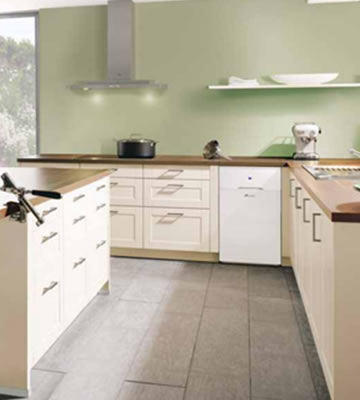According to Which? there are an estimated four million homes that are unconnected to the main gas grid in the UK.
For those homeowners, one of the main heating solutions traditionally has been to use an oil-powered central heating system. However, In the last few years with the price of oil on the rise they’ve been somewhat discounted as a modern way to heat a home.
That said, we are pleased to see the number of enquiries for oil boiler installations rise in this last year. And you may be surprised to learn that there are still more than eighty oil boiler models on the market, so you are not limited by choice.
Types of Oil-Fired Condensing Boilers
While oil boilers work in very much the same way as gas heating systems many are free standing, not wall mounted like a gas boiler and tend to take up a bit more room. It is also worth knowing that with an oil system a tank is needed near your house for the oil storage.
There are three different types of boiler: Combi or Combination, Regular or Standard and System.
These can all differ concerning the fuel that they run on (e.g. oil not gas for those without mains gas) and whether they are condensing and non-condensing. Since 2007 it has been a legal requirement that all newly installed oil boilers are the condensing type. These are the only ones that can reach the required Sedbuk efficiency rating of 86% or more.
Combi or Combination Boiler
Combi Boilers heat the water in your Central Heating System and produce hot water on demand from the mains supply. They are usually better suited to homes that enjoy a decent mains pressure and families with an average demand for hot water.
Regular or Standard Boiler
A Regular Boiler, sometimes also referred to as a standard or conventional boiler, heats water inside a hot water tank (mostly found lurking in airing cupboards) which is fed by cold-water storage, usually in lofts. You then use the hot water from this tank as required.
System Boiler
As with a Combi Boiler, a System Boiler produces hot water by heating water straight from the mains, except the hot water is stored in a tank, as with the Regular Boiler. One of the main advantages is there is less space required, and they suit properties with lower mains pressure and higher demand.
More on boiler types here > https://www.gregorheating.co.uk/boilers/
So, in summary:
The advantages of oil heating
- You have the freedom to change supplier at any time as well as who delivers your fuel.
- Oil heating can be used alongside renewable technologies.
- It’s a great alternative fuel if your home is unconnected to the gas mains.
The disadvantages of oil heating
- Rising costs of the fuel in the UK.
- You need a tank outside your home so outside space is imperative.
- You will sometimes require an alternative source of energy for cooking (e.g. electric cookers)
- Oil boilers can require more frequent cleaning than gas boiler and oil filters need regular changing, so make sure you have an annual service to ensure your manufacturers’ warranty is valid.
Want some advice? Give us a call on 0117 935 2400 to find out more about Oil Fired Heating Systems and which types of boilers are best suited to your property needs.


